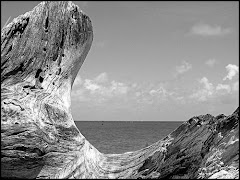
Its funny, typically the blog is a writing relief, it is perfectly acceptable to write in casual style, there is hardly a concern conveying messages because the language and ideas are not entirely far from reach. However, the same cannot easily be said when the ideas, directions, and connotations of anagogy are brought to discussion.
While sitting down to write this, I accumulated about a page of opening statements, that now lay barely visible under the wrath of frustration and a rubber eraser. To try and begin the discussion of anagogy with any opening sentence or paragraph itself, reduces the very limitlessness of the concept.
My proverbial doors of perception to this concept, first began to unlock, unlatch, and creek open when our Dr. Sexson expanded up the commonly used yet commonly misunderstood word: Apocalypse. The lifting of the veil as it had been described.
This de-masking, can be seen in many religious texts, obviously in the Christian Bible…apocalypse, rapture… but it is seen somewhat more clearly, more true to the Greek origin of he word in the Hindu text, the Bhagavad-Gita.
In Bhagavad-Gita there is a discussion between
“All was magnificent, all expanding, unlimited.”
Arjuna says, “you are the origin without beginning middle or end.”
It is here Arjuna understands, he understands in a way no one has before: limitlessly. Connecting this moment that Arjuna has of exuberance, of absolute power, knowledge, everything. Of absolute period – with the notion of anagogy, the idea that these things that he sees are attainable through literature. That complete understanding of all, can be reached once literature can be seen without a veil: complete, utterly infinitely eternal…lets just say woo-woo.
In fact when Openhimer viewed the first atomic explosion in
This moment in class, discussing Frye was my woo-woo moment, my nuclear explosion.
Now this is certainly not to say I understand anagogy fully, or have truly ever seen literature or the world at this level, for I do not feel that is truly possible with human constraints. But it is the recognition and acknowledgment of this of plane existence which is significant. Blake too, sees them but, admits does not see them to their full extension.
“ the roaring of lions, the howling of wolves, the raging of the stormy sea, and the destructive sword, are portions of eternity too great for the eye of man.”
Its pretty crazy because all these things, well they border on the idea that anagogy is itself religious, that those who see, are truly enlightened. It follows almost any major religion. One is all and all is one. For quite a long time I have never considered my self a religious man, but all this while studying English, I have in a sense been pursuing the enlightenment that almost all religions strive to attain. Again I am nowhere near there, nowhere, but still its pretty woo-woo.
“I’ll reveal the truths of heaven, all the oracles
That highest wisdom holds. The things I sing
Are mighty things our forebears did not probe,
Things that have long been hidden. Let us roam
Among the starry heights; yet, let us rise
Above the earth-this site so dull, inert;
Let clouds transport us, let us stand upon
The sturdy Atlas’ shoulders; from that height
We shall watch those who stagger far below"
-pythagoras


